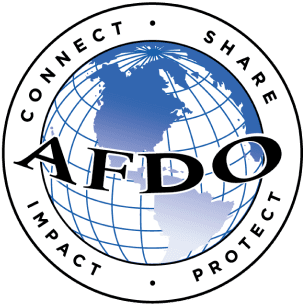More from the MCAFDO Annual Educational Conference
As promised in last week’s e news, here’s more about the 2020 MCAFDO Annual Educational Conference that was held in Rogers, AR February 25 and 26. The 106 attendees included regulatory personnel from federal, state, local public health, and Indian health services. There was also representation from industry and academia. Attendees represented the states of Arkansas, Iowa, Kansas, Missouri, Nebraska, Oklahoma, and Texas.
During the two day conference, speakers presented on topics such as cannabis/hemp, flood response, whole genome sequencing and its use in industry and investigating foodborne illness outbreaks, sanitation for food safety and using sanitizer test strips, national retail food regulatory standards programs (Standard 8), foods adulterated with toxic substances from decorating powders, smarter food safety strategies, and etc.
MCAFDO presented two awards. Individuals recognized were Tenesha Stubblefield, Food Safety Specialist, from the Iowa Department of Inspections & Appeals Food & Consumer Safety Bureau, and Jennifer Pierquet, Program Manager, from the Association of Food & Drug Officials (AFDO). Stubblefield was recognized for her efforts to aid and assist food establishment operators and communities impacted by extensive flooding during the spring of 2019. Pierquet was recognized for her many contributions to the MCAFDO organization as well as her assistance to States participating in the Manufactured Foods Regulatory Program Standards (MFRPS). She worked on developing the Coordinators Manual, which is a guide that is helpful to all programs enrolled in the MFRPS. She was also instrumental in developing a workshop for Program Standards Coordinators during the annual MFRPA meeting. Additionally, she has been instrumental in assisting States who use the USAFoodSafety or USAPlants inspection software programs.
Prior to MCAFDO, 35 participants attending the environmental sampling training learned how to aseptically collect environmental samples in a retail food establishment type setting. Individuals learned techniques such as how to don sterile gloves, select and identify sample locations, swabbing techniques to collect samples, and documenting samples collected. The session was attended by individuals from various regulatory agencies, academia, and industry.
